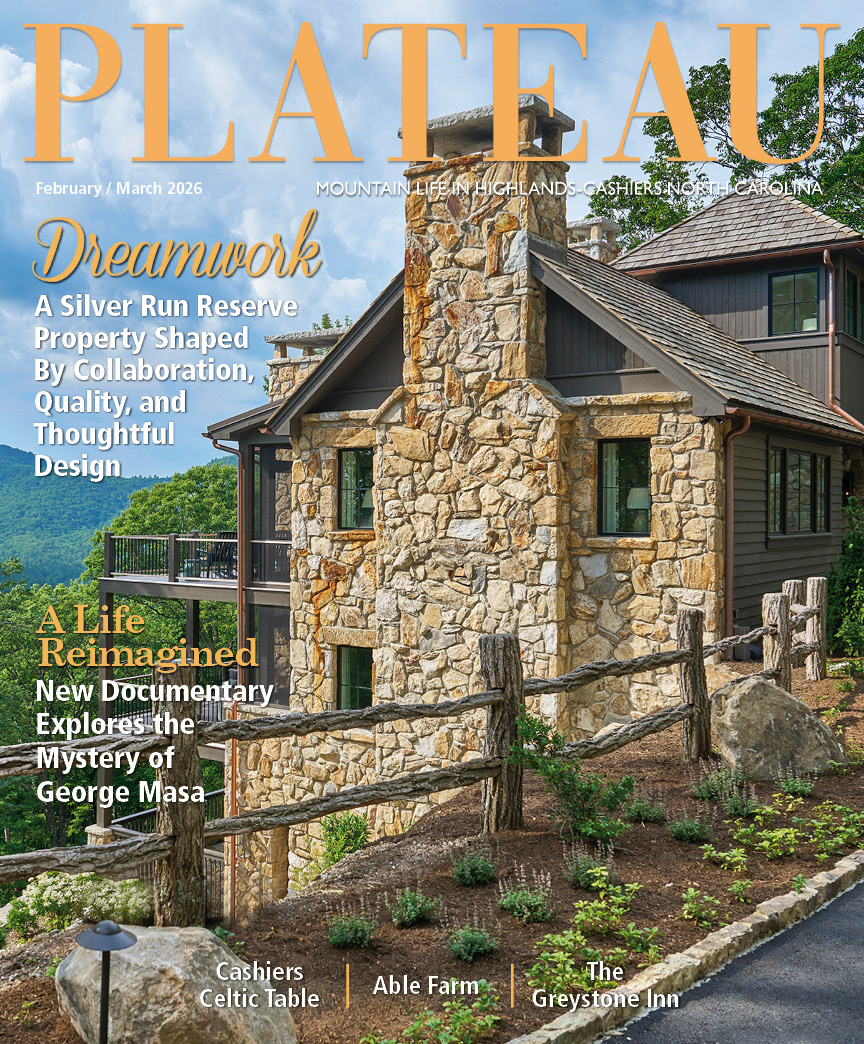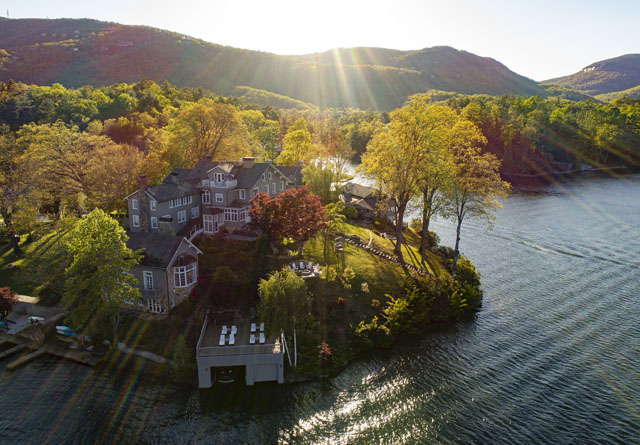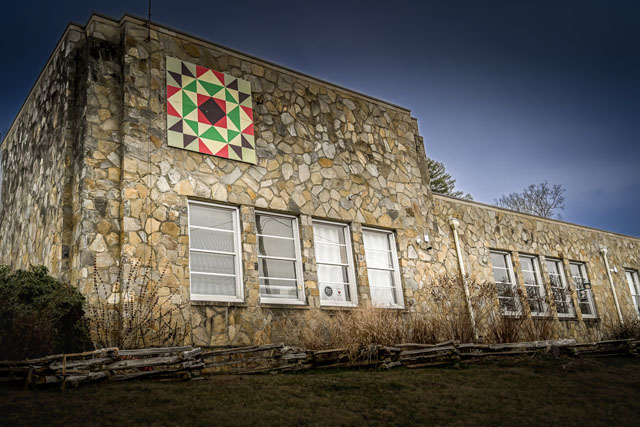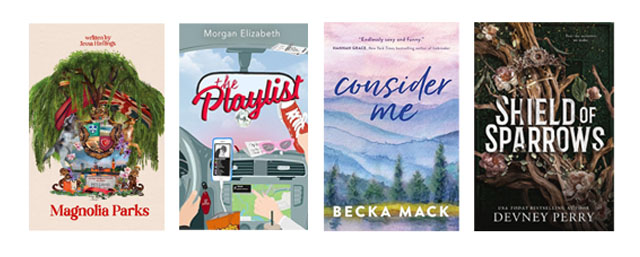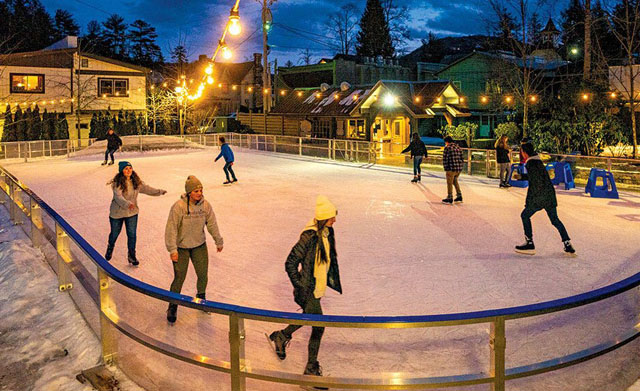Horticulture Meets Activism
04 Apr 2022
Garden clubs of the plateau
By: Kristin E. Landfield
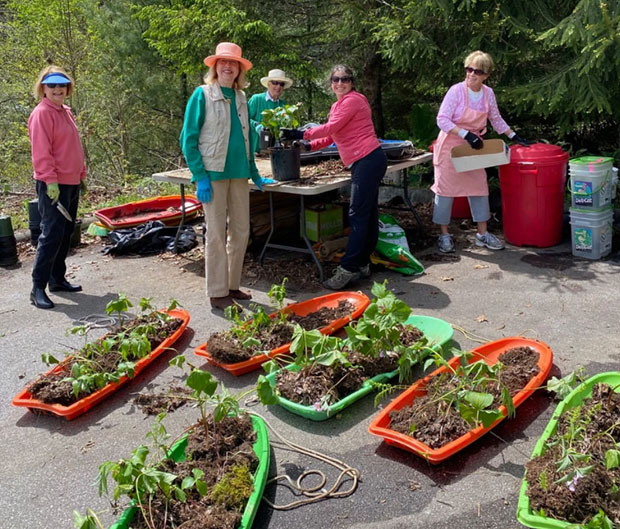
“The love of gardening is a seed that once sown never dies.” ~ Gertrude Jekyll
Spring is now fully upon us, and with its emergence, so comes the urge to garden. Tender green leaves have consumed winter’s sparse branches, their plump buds swell. Warmer soil temperatures roll out a carpet of ferns over the forest floor. Spring is insistent: birds hatch and flowers open with determination that defies interruption from the human news cycle. Each day in spring, another surprise emerges with hopeful promise. Gardens connote a sense of presence—they happen “here” and “now,” wherever “here” may find us. It’s in our human heritage to tend, to grow, to recognize richness in soil and sense abundance in spring’s verdancy. Likewise, it’s in our human heritage to be social, to seek out others with similar interests, to gather and share. The notion of a “passalong” plant has always appealed to me. Along with the gift there is knowledge passed too: “Plant this sedum in a sunny location where it drains well” or “Make sure this columbine has a little protection from the late afternoon heat,” and so on.
When I was 7 years old, our neighbor Mrs. Tuttle broke off a bearded iris tuber and let me plant it with her many others. In my sunny memory, the lavender and yellow flowers were always blooming and sweetly fragrant, planted in orderly rows much tidier in my mind than I’m sure they were in fact. I climbed a pink crabapple tree and watched the wet petals rain down on her azaleas—large swaths in all colors. She gave my mother a bright red geranium, and I mashed its petals against my lips as a child’s lipstick. Her garden was a childhood treasure. As Elizabeth Lawrence penned, “There is a garden in every childhood, an enchanted place, where colors are brighter, the air is softer, and the morning more fragrant than ever again.” In many ways, Mrs. Tuttle and her rambling garden were my introductions to a sense of sharing that is so tethered to tending a garden. Emily Wilson’s biography of Elizabeth Lawrence is titled “No One Gardens Alone,” reflecting the communal aspect of gardening that extends beyond solitary tasks with pruners and trowels. Gardeners connect over their common pleasure; they trade insights and bear witness to the ever-changing moments in their gardens. Here in western North Carolina, where plants prosper in our distinctive climate, many keen gardeners gather in local clubs over their shared affinity.
The Highlands-Cashiers Plateau has always enjoyed a thriving garden culture. Escaping the heat of hotter locales, gardeners relish the cool mountain air. There are gardeners who carry generations of experience in cultivating, and there are plant lovers who migrated specifically to enjoy a flourishing garden in the mountains. My own exodus from Atlanta was prompted by a love of plants, both the native vegetation as well as the ability to grow herbaceous flowering plants—the possibility for teeming perennial borders. The climate on the plateau better replicates that of an English garden than anywhere else in the Southeast. For those of us who love plants, it is a botanical treasure. It’s then no wonder our local garden clubs play a prominent role in the community. They are more than social clubs, though the fellowship is fun. Most garden clubs share a common thread of purpose: promotion, education and service. Regardless of their specific focus or locale, they each embrace the expressed intention to promote a love of horticulture, to educate and protect the natural landscape, and to serve as a non-profit supporting the broader community.
A brief history:
Garden clubs have always been a place for women to gather over their common interest, yet traditionally they have been tied to social activism as well. Many of the first garden clubs were closely allied with historical societies and conservation organizations, advocating to protect and recover important landmarks when industrial growth put some such places at risk. Early garden clubs burgeoned from the same women’s movements in the 1870s-1920s that engendered all sorts of social clubs. These clubs provided women an outlet for education, service and social action. As with many groups at the time, horticultural societies were generally restricted to men; in response, women began forming their own local clubs to fulfill their desire to lead community-oriented projects. It’s with this heritage that our present-day garden clubs are so devoted to community outreach. Here in western North Carolina, our regional garden clubs support conservation; they fund public grants for beautification and research and provide scholarships for young people to pursue education, often in horticulture or forestry.
Mountain Garden Club, Highlands, NC and conservation
Since 1979, Mountain Garden Club has been heavily invested in community events and outreach. A strong supporter of local conservation, their mission commits to “aid in the protection and conservation of natural resources, encourage civic beauty and roadside beautification, stimulate the study of the fine art of gardening, and cooperate with other agencies furthering the interests of horticulture and conservation.”
Mountain Garden Club will host their Memorial Day weekend plant sale at the Highlands baseball field on May 28th from 9:00 a.m. to noon. This annual sale boosts funding for conservation, civic projects, education and community gardens. Many of the plants sold are native plants sustainably harvested from here on the plateau, so they are likely to thrive when correctly sited in a local garden. Members share garden insights on the plants for sale.
The Laurel Garden Club, Highlands, NC
The Laurel Garden Club has a rich history in community engagement. 2022 marks their 40th anniversary supporting conservation and horticulture on the Highlands-Cashiers Plateau. Among their many educational events, the club has hosted such topics as “Cherokee Culture, Past and Present: Using Native Plants for Medicinal Purposes.” In recent years, the Laurel Garden Club has raised over $200,000 for community projects; much of these proceeds stem from the publication of their cookbook entitled “Celebrate Highlands” and their previous kitchen tours. Through its formal grant program, The Laurel Garden Club has given generous support to the Highlands Biological Station, the Highlands Historical Society, and the Highlands-Cashiers Land Trust, to name a few. They are working on generating resources and events to continue such support, including a gift to the new Highlands Performing Arts Center. The group Land Stewards of the Highlands Plateau is an important branch of the Laurel Garden Club, promoting and educating responsible land use for western North Carolina.
Wild Azalea Garden Club, Highlands, NC
Highlands’ Wild Azalea Garden Club focuses heavily on educational events, often hosting experts to share insights from their crafts. For the 2022 season, Wild Azalea Garden Club will host a dynamic roster of local experts for educational lectures, including Brent Martin, executive of Blue Ridge Bartram Trail Conservancy, Sonya Carpenter, former executive director of Highlands Biological Foundation, and Kirk Moore of Oakleaf Flower and Garden. According to member Karen Castellaw, the Wild Azalea Garden Club comprises a group of ladies who seek to enhance and share their knowledge of gardening, each bringing their unique perspective and talents to their group. They endeavor to support local businesses and organizations in preserving the beauty of Highlands and its surrounds. Fundraising from their members and events has enabled them to support local projects in the service of horticulture and conservation.
Cashiers Valley Garden Club, Cashiers, NC
The Cashiers Valley Garden Club is also a group of engaged members sharing in similar goals—education and promotion of gardening and land management, preservation of Cashiers’ natural beauty and support of community projects. They champion local horticulture, historic preservation and garden appreciation in Cashiers through educational events and funding local projects. Last year the Cashiers Valley Garden Club hosted local horticulturist and botanist Adam Bigelow for a lively native plant lecture and excursion. They have plans for similar events and community support for the coming 2022 season.
Toxaway Falls Garden Club, Lake Toxaway, NC
This year, Toxaway Falls Garden Club also celebrates their 40th anniversary. They are looking forward to honoring this milestone while considering creative ways to enhance their programming after COVID-19 has impacted their meetings. Member Cathy Hawley explained the three main intents of the club: education, fellowship and community engagement. For education, the group engages outside speakers to teach on local gardening and natural resources. Further, they utilize the internal expertise and talents of seasoned gardeners within the group, who also teach workshops and offer lectures to other members. The club organizes field trips to public gardens as well as to the gardens of fellow members. Annually, the Toxaway Falls Garden Club hosts a flower arranging program that is paired with the Lake Toxaway Art Guild. Artists set up their easels and paint the floral designs. Community engagement has been heavily focused on youth in the area, working with T.C. Henderson Elementary School on a garden and nature program. They provide scholarships to local high school students to finance college expenses. Among other community beautification projects, they have provided over $75,000 towards this scholarship fund and created a walking path through the forest at the school, where they have placed signs to identify native plants along the way.
French Broad River Garden Club Foundation (FBRGCF) in Asheville is our nearest Garden Club of America chapter. The Garden Club of America has been a benchmark society since 1913 and has created a guiding culture of support in horticulture and conservation. The FBRGCF will host their 70th annual spring plant sale on April 23rd from 9:00 a.m. to 3:00 p.m. at 1000 Hendersonville Rd in Asheville. All proceeds support scholarships for horticulture and conservation.
Reminding us again of the generosity of gardens and those who love them, Elizabeth Lawrence wrote: “This is the gate of my garden. I invite you to enter in; not only into my garden, but into the world of gardens — a world as old as the history of man, and as new as the latest contribution of science; a world of mystery, adventure and romance; a world of poetry and philosophy; a world of beauty; and a world of work.”



